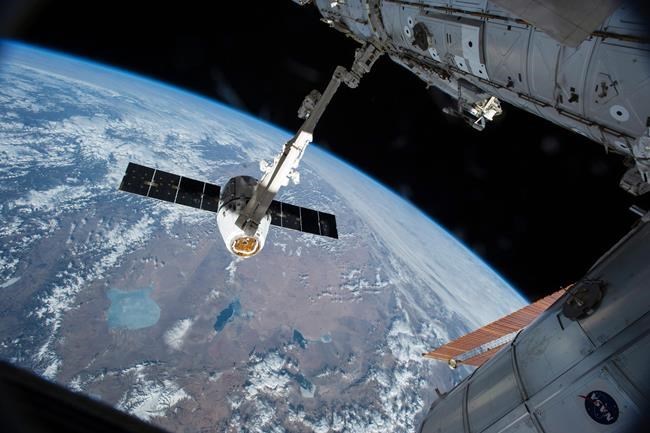It's hard to make things work in space, and even harder to make money there.
With a long history in the space industry and a pocketful of healthy companies, Canadians are good at both. But industry executives and experts say the country needs a booster to maintain an advantage in a sector poised to, well, skyrocket.
"We have a lot more experience having companies that make their way in space than a lot of countries do," said Iain Christie, a longtime space executive and analyst.
"(But) we're still dining out on work that was done 20 years ago."
Until about a decade ago, space was a place for government programs and large militaries. The costs were too high for other players.
But factors including miniaturization and the availability of off-the-shelf technology have drastically cut those costs. So has the entry of private launch companies.
In 2000, putting a satellite into orbit cost $25,000 per kilogram. Now, depending on which rocket carries the load, it could be as little as $4,000.
"The cost of technology and the cost of launch decreased," said Christie.
That created opportunity.
In 2011, Stephane Germain realized that increasing concern about greenhouse gas emissions was going to create demand to measure them, which can best be done from space.Today, his company GHGSat has six satellites in orbit, with another four planned over the next year. They're able to measure gases such as methane with unprecedented resolution for both emitting companies and investors wanting to quantify their risk.
"Miniaturization got to the point where you could do something useful with a very small satellite," Germain said. "We were looking for that opportunity (and) that wound up being GHG emissions."
That's one side of the space economy. Another is building infrastructure.
In November, Canadensys Aerospace Corporation announced it would build a lunar rover for NASA's next moon mission. Weeks before, MDA Ltd., which also operates satellites, announced the second sale of their Canadarm technology to a company building a private space station.
The importance of those sales goes well beyond their dollar value, said MDA CEO Mike Greenley. They put Canada where the puck is going.
"There are opportunities to invest in lunar infrastructure," Greenley said — communications networks, electric vehicles, even space-based mining.
"There are a combination of new areas."
Canada's long history in space — it was the third country to launch a satellite — has also given it recognized expertise in techniques including synthetic aperture radar, which allows satellites to peer through clouds or at night with amazing accuracy.
It all adds up to an industry worth about $5.5 billion a year that employs about 23,000 highly trained Canadians, according to the Canadian Space Agency's most recent report.
But that's only a small piece of the global pie.
The European research agency Euroconsult pegged the entire value of the space economy — launch rockets, satellite communications and Earth observation — at about $500 billion in 2021. By 2030, Euroconsult says it will reach $860 billion.
If Canada wants a slice, it will have to sharpen its knife, said Ryan Anderson of the Canadian Space Society, a grassroots organization promoting space and space education.
"Canada has lost its step in terms of market share," he said. "We're a victim of our own success."
While the country's space economy is good at generating promising startups, not enough of them find the wherewithal to grow, said Anderson. That's the fault of both government and the investment community, he said.
"Canada's not as ballsy or risky as some other investment pools," said Anderson.
Greenley agrees.
"Canada's starting to drift behind a bit."
Greenley said that when the International Space Station was the big game in town, there were five space agencies involved. Now, he said, there are 21 countries taking part in NASA's Artemis program to the moon.
He quotes the Euroconsult report that concludes Canada's share of the global space budget is half what it used to be.
"A lot of countries want in," he said. "We need to keep pace with the rest of the world."
Countries such as the United States and the United Kingdom have a high-level body to ensure the interests of the space economy remain in the forefront. Many in the Canadian industry say this country needs the same.
"Someone has to be bringing the importance of space to senior decision-makers in Ottawa," Greenley said. "Ultimately, it's a business environment but government does have a role."
Christie said the federal government needs to be much more consistently interested in space. Canada needs to move beyond funding individual projects and develop an overall plan for the industry.
"The federal government does not invest as much in space industry as they get in return," he said. "Canadian support for space is well down in the middle of the pack."
After all, he said, there's a tradition to defend. Canada has been leading the way in space for decades.
"We should spend a lot more time on a position that is hard-won."
This report by The Canadian Press was first published Dec. 11, 2022.
Bob Weber, The Canadian Press



